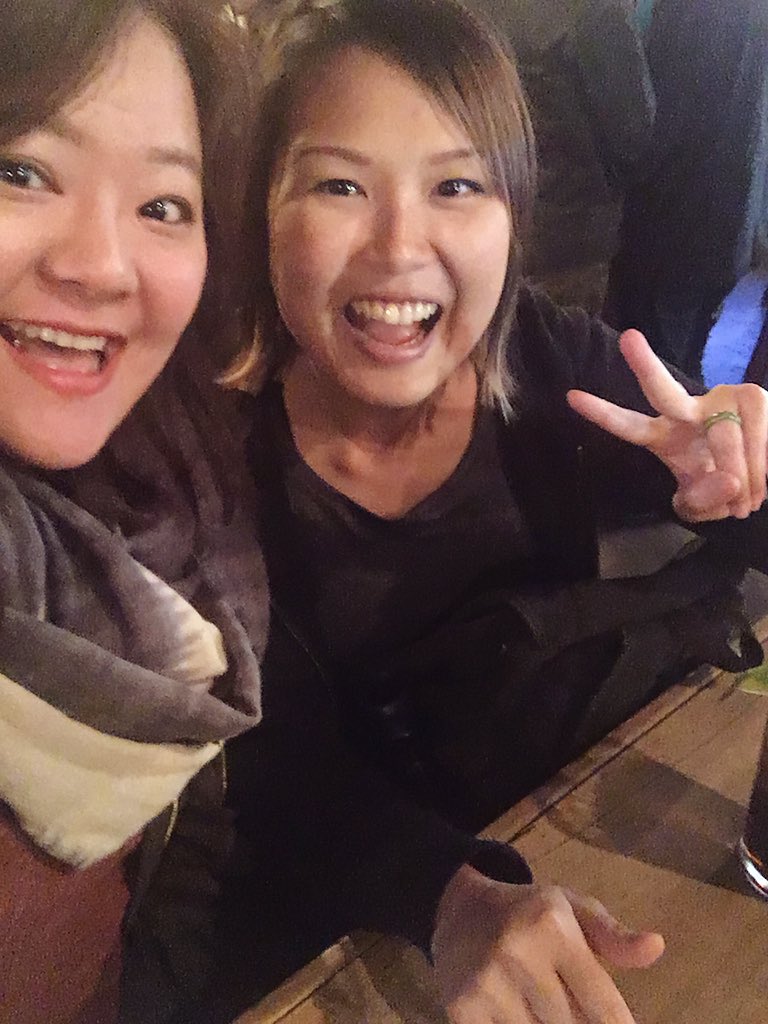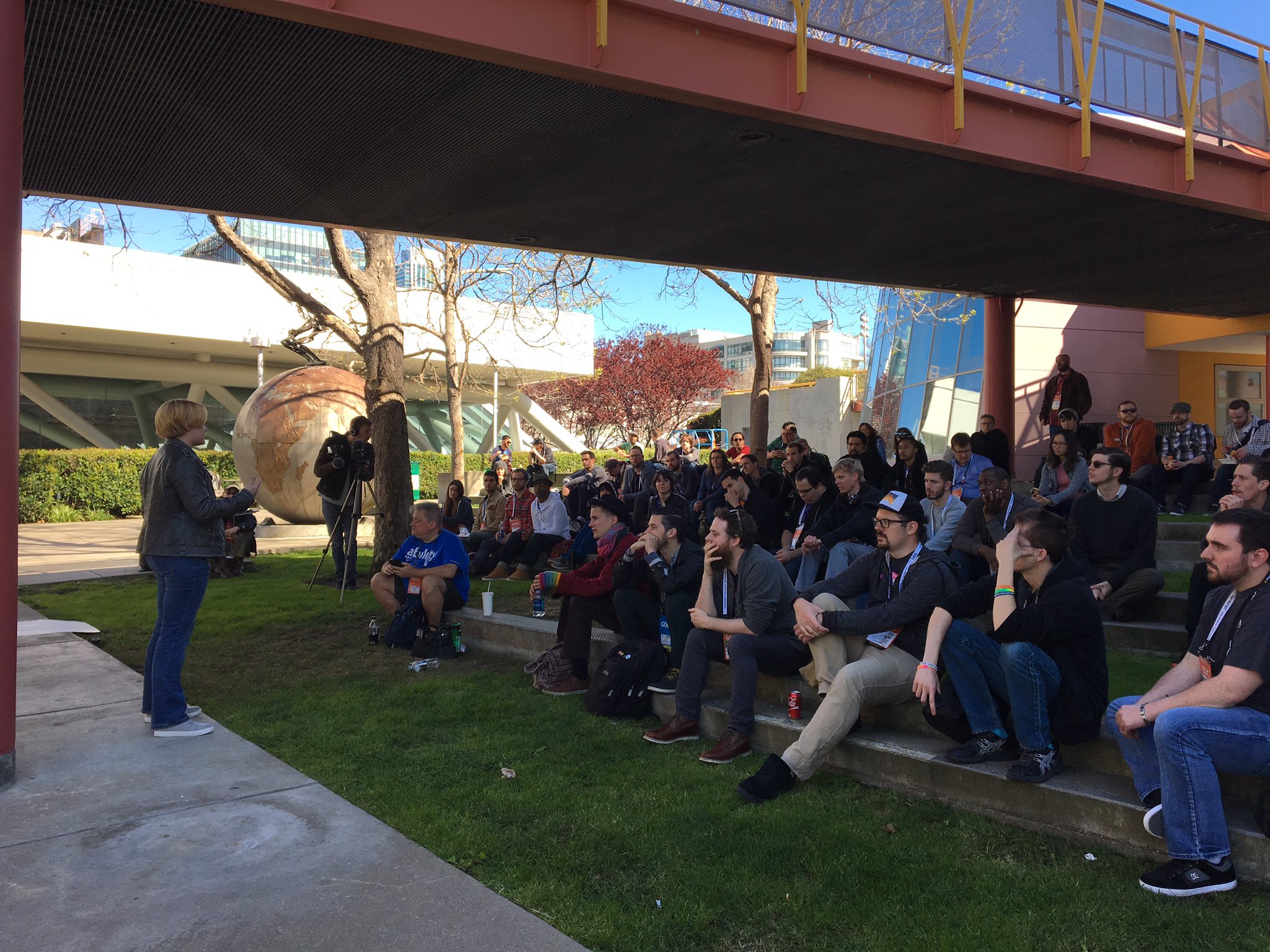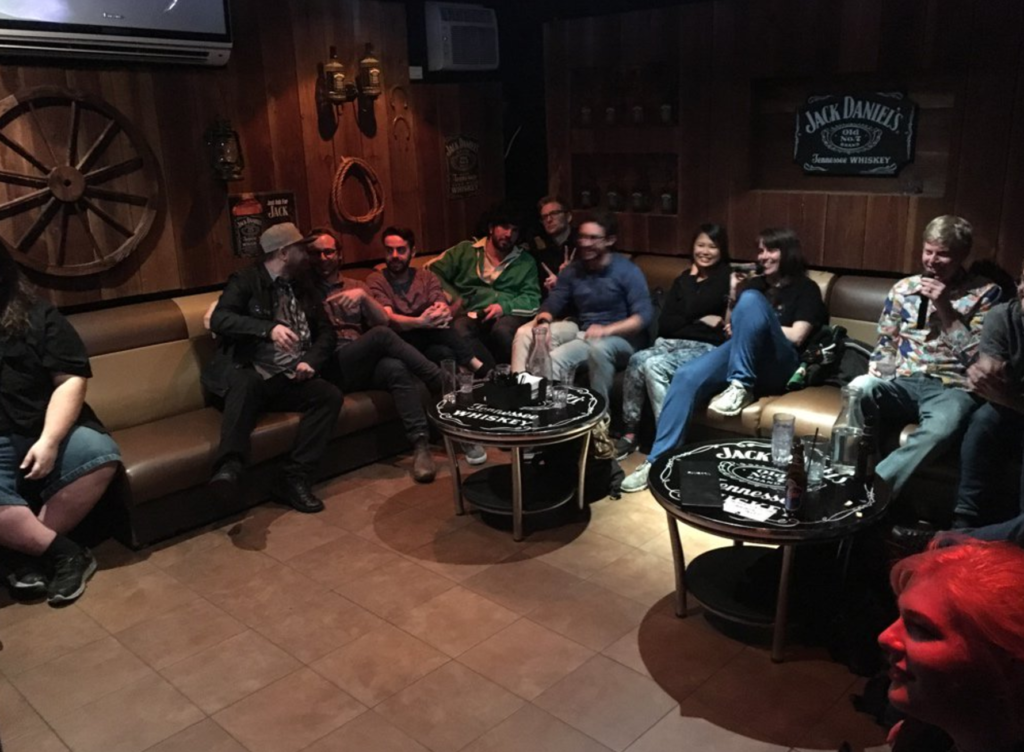Being a newcomer to GDC, I didn’t know what to expect. I went with the intention to merely soak in audio technical knowledge but ended up learning so much more about myself and was blessed to observe/be part of this humbling experience. Surrounded by incredibly talented individuals, it didn’t matter if you were an industry veteran or a fresh graduate/student — there is something to learn from everybody. What makes this community such a special one?
1. Positivity
As someone who is pretty self-conscious and has some social anxiety, I didn’t feel like I had to mull over small socialising/networking boo-boos which I’ve made. There seems to be immense trust within the community that everyone’s opinions are valid and respectable — there are no wrong answers, just different viewpoints. You could be someone who uses 100% sample libraries and Audiosuites all the way, or someone who is very explorative; takes their time to generate SFX from synths… there are just many solutions to the same result — making awesome sounds. The clarity of our common goals is one which binds us together. Nobody is out to prove anyone wrong as there is no need to!
2. Graciousness
With the knowledge that everyone’s voice matters, I also didn’t feel ostracised in any way. As with most communities, cliques naturally form but the beautiful part of this community is that you can enter into anyone’s “group” or conversation and immediately feel welcome. It is heartening to see that everyone makes the effort to be conscious of small actions as mentioned in Jeremy Lim’s guide to GDC, i.e. make space for others, avoid dominating conversations. It’s these little actions which help with newcomers feel at home.
3. Diversity/Inclusivity
At the pre-GDC game audio party, the DesigningSound mixer, I didn’t know anyone by face. The first person I sat next to was someone I recognised from the Women in Audio Slack, Shauny! From there, networking became much easier knowing that I wasn’t alone in this. During the last Sightglass Coffee (a facilitated game audio roundtable at 7am every morning) session, Shauny added that it’s heartening to see more women in the game audio community, that there are people just like her in this aspect of game dev. I couldn’t agree more. Not only was there a roundtable for Women in Game Audio, 3 of the facilitators running the Sound Design roundtable were all women — Kristen Quebe, Jaclyn Shumate and Caron Weidner! On the 2nd day of the Sound Design roundtable, nearly 50% of the participants were also women. Men in the community also show solidarity and allyship by speaking up for the women in game audio. This is important because one of the main reasons many girls don’t consider a career somewhere is the lack of female role models.

4. Mentorship
The game audio community visibly has women in leadership positions, which brings me to my next point on age diversity as well. Growing up in Asia, it is refreshing to hold conversations with someone much older and experienced with little enforcement of social hierarchy. To see this in action, the PopCap audio team panel: Healthy Culture Healthy Team has an age gap of 25 years between the individual team members, yet are able to maintain an ego-free work environment. The result is strong synergy within the team and a safe space to excel creatively.

The more experienced you are, the more you give back. This nurturance culture is something to aspire towards as we gain experience ourselves. There is also much to learn from younger members as their journey is always different from mine. The series of microtalks: Stories of Audio Mentorship and Community was particularly inspiring on this front. As Stephan Schutze mentioned, everyone from mentors to mentees are our heroes.
5. Organisation of Events
Can I just say that the game audio events *outside* of GDC are just the best? Even if one doesn’t have a GDC pass, there are tons of events to attend. Mentioned earlier, Sightglass Coffee happens 6 mornings in a row at 7am. Damian Kastbauer sets the tone right by adding a disclaimer every morning on how this is a safe space and how everyone’s voice should be heard. Questions are then asked about which events stood out yesterday and which ones are going to be attended today. The conversation eventually segways into a small roundtable discussion about specific topics plucked from said events. Contributions are just at the right pace — nobody dominates, neither is there complete silence, giving everyone a chance to speak up if they’d like to.

Between Wednesday to Friday, lunchtime microtalks happen at the grassy knoll behind the carousel, also known as CarouselCon. Hosted by Matthew, prospective speakers can submit their names to have a 10 min microtalk — no slides, no PA, just education. Topics vary from making sounds for games dealing with accessibility to constructing a new, fictional language. This is Matt’s first time organising CarouselCon and I’d say it’s a huge success!

Also for the first time, Luca hosted a Game Audio Karaoke! Expected turnout was about 30 pax, but attendees ballooned and we ended up upgrading to a larger room. The main room was also occupied and other sound peeps also ended up booking their own room. Kudos to Luca for being able to handle all these unforeseen changes effortlessly. By the way, for those who went or intend to go, there is a fundraiser for this!

All these events wouldn’t have happened if not for the courage and effort of these individuals. There are waaaaay more examples of good leadership among the game audio community which I haven’t mentioned, and it’s so great to see people executing ideas freely with the support of the community.
6. Solidarity
Some of my game dev friends have asked me; what makes the game audio family so close-knit? I think one of the biggest reasons is that we are all advocates of game audio. We don’t see game audio as just a job which pays the bills or an afterthought of the game dev production cycle. The very first talk which I attended was by Matthew Lee Johnston: Great Audio Design by Any Means Necessary. Expecting a semi-technical talk , I was greeted with ways to be assertive in the production team as a sound designer and why we need to continuously advocate for our craft. I’m glad it was the first talk of the day as a sobering reminder of our rightful place in the games industry. There is also absolutely no shame in allocating time for mentorship, friendship and community-building on top of improving our craft.
These 6 points sum up my immediate afterthoughts on my first experience with GDC 2017. “Don’t be a douchebag” is a great summary of many game audio talks, but from what I see, people aren’t satisfied with that as a minimum standard. Members of the community go above and beyond to be kind and welcoming — the extension of knowledge on how to become an overall better person is what makes the community so special.
Leave a Reply